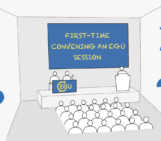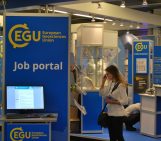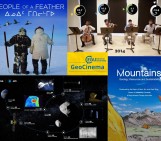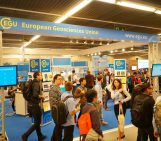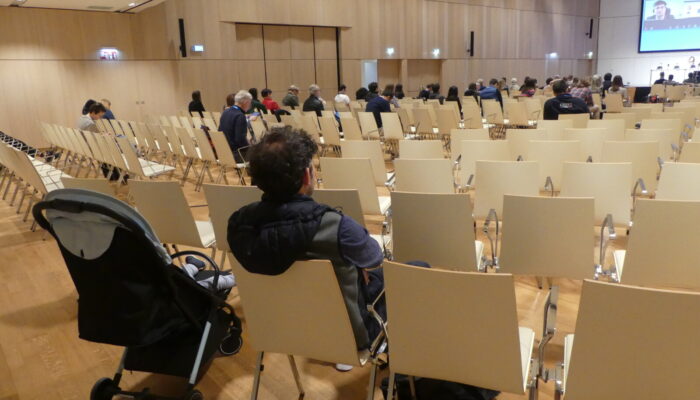
Do you think managing a scientific career and having a family is difficult? Would you like to see more family support at conferences?
So do we! ‘We’ are Lisa Schielicke, Leonie Esters, and Elena Päffgen from the Meteorological Department of the University of Bonn in Germany. Together, we are working on the project “Family-Friendly Conferences in the Geosciences” to increase support for families, raise awareness of their challenges, and make scientific events more inclusive and accessible for everyone.
In the geoscientific field, conferences and other meetings, like the EGU General Assembly, play a vital role in professional exchange and personal networking. For many researchers, these events are crucial for career development, collaboration, and staying up-to-date with the latest research. However, attending these conferences can pose significant challenges for scientists with families.
Project Overview
The initiative started in April 2023 and is funded by the Gleichstellungsbüro (Office for Equal Opportunities) of the University of Bonn for one and a half years.
The project encompasses three main topics:
Part one, current services evaluation. What characterises a family-friendly event? And what support services are already available?
We began by evaluating existing family support provided by employers (universities, research institutions, etc.), the conferences themselves, and other initiatives. However, the struggles of parents are individual. To address this, we organized an online gathering for scientists with children to share experiences and ideas.
Through two surveys, we directly addressed those in our community who have children. In a first online survey available from June 30 to October 31, 2023, we reached 245 scientists from different disciplines and institutions, 58% of whom have children. This helped us gain insights into the most important aspects of family-friendly conferences. The main concerns of the survey participants are summarised in the following four categories:
- Family-friendly infrastructure at conferences: Examples of possible support offers are shown in the hierarchy plot below.
- Financial support: For travelling with a child and a caregiver, family-friendly hotels, entrance fees, and more.
- Awareness: We need to talk more about being a parent in academia and the associated struggles, as well as envisioning the opportunities.
- Clear communication: Support offers need to reach the right people. They must be presented and communicated precisely, leaving no room for confusion.
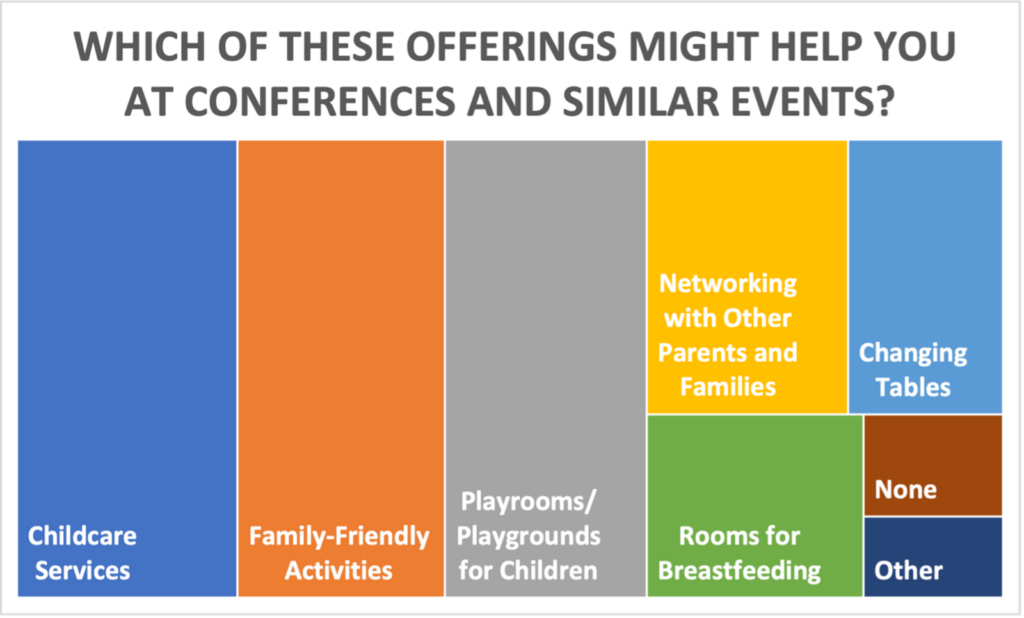
Hierarchy plot of the results of the first survey on the question “Which of these offerings might help you at conferences and similar events?”, answered by 139 parents. The tile size represents the relative importance of the areas according to the survey participants.
Part two, conference organiser interviews. Which conferences are family-friendly and what can conference organisers do to make their conferences more family-friendly?
We are now conducting interviews with conference organisers to learn about their experiences. We aim to understand the feasibility of implementing family-friendly measures and document best practices. On our website, we will provide information on the family support offered at upcoming international geoscientific events. Additionally, we plan to create guidelines for conference organisers with concrete measures categorised by financial and organisational costs.
How do we communicate and share our results?
We presented our findings at the EGU General Assembly 2024 (Päffgen et al., 2024) and the 3rd MeteoXchange ECS Conference. We used postcards and posters to inform about our initiative and advertise our surveys. Going forward, we will publish our results in a geoscientific journal and display them on our website to highlight the challenges faced by parents and propose actionable solutions to enhance family support at conferences.
Part three, the current survey for parents in the geosciences!
Our new survey has 27 short questions, which were crafted in cooperation with Manuela Schmidt, a sociologist at the University of Bonn, to whom we extend our thanks. It is based on the results of the last survey but runs as a standalone.
If you are a scientist, researcher, PhD candidate and/or student in the geosciences, with children of any age, we invite you help us out and participate in our second survey on making conferences more family-friendly!
The survey is available in both English and German. It will remain open for participation until 14 July, 2024, and should only take 5 to 10 minutes of your time.
You can participate HERE or access the link with the QR Code:
We thank you for joining us on this journey toward more family-friendly conferences! Please share the survey link with all parents in your geoscientific field.
Further Information
If you have any questions or need additional information, feel free to reach out to us at ffc2023@uni-bonn.de.
For regular updates on our project and more information on family-friendly conferences, we’d be happy to share our progress with you through our newsletter. To subscribe, click this link or visit our website.
Päffgen, E., Esters, L., and Schielicke, L. (2024) Family-Friendly Conferences in the Geosciences, EGU General Assembly 2024, Vienna, Austria, 14–19 Apr 2024, EGU24-410


